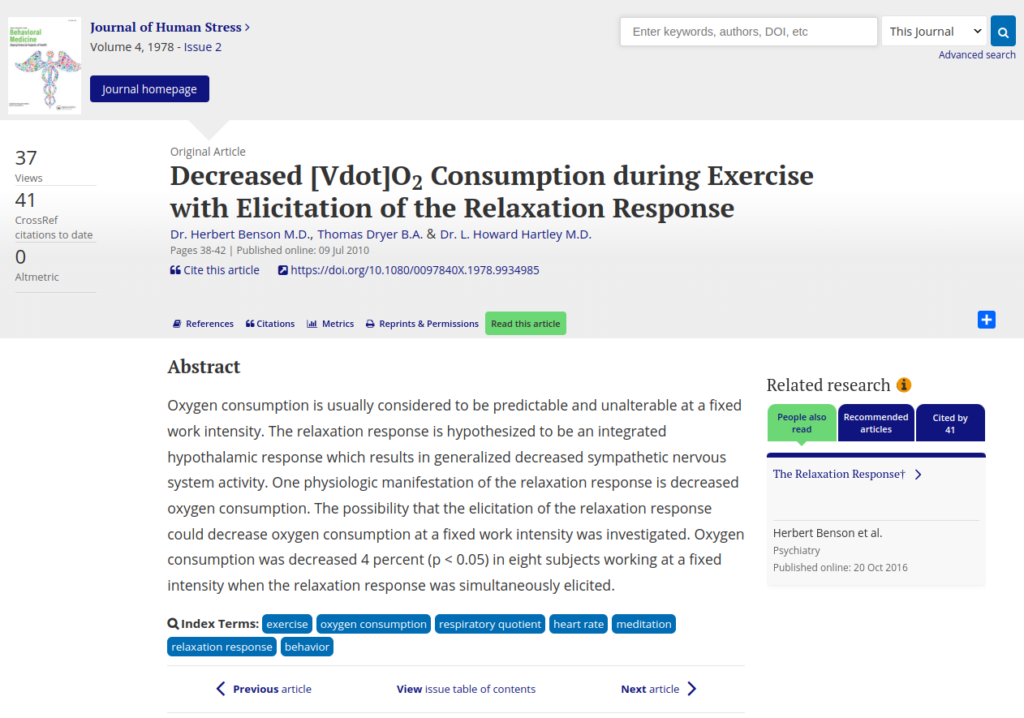Publication
Journal of Human Stress
Vol 4, Issue 2
Abstract
Oxygen consumption is usually considered to be predictable and unalterable at a fixed work intensity. The relaxation response is hypothesized to be an integrated hypothalamic response which results in generalized decreased sympathetic nervous system activity. One physiologic manifestation of the relaxation response is decreased oxygen consumption. The possibility that the elicitation of the relaxation response could decrease oxygen consumption at a fixed work intensity was investigated. Oxygen consumption was decreased 4 percent (p < 0.05) in eight subjects working at a fixed intensity when the relaxation response was simultaneously elicited.
Web and Email Links
Related Listings
Journal
Journal of Cardiovascular Nursing
Hypertension is one of the leading health problems in the United States. It is commonly accepted that as many as 60 million Americans have hypertension, with the majority (>70%) having mild elevations (diastolic pressure range, 90-104 mm Hg). The treatment of hypertension accounts for more office visits to health care providers and more treatment than any other medical diagnosis. A 1980 National Institutes of Health survey showed that about 2% of visits to health care providers wer […]
Journal
Behavioral Medicine
To examine the extent to which advanced meditative practices might alter body metabolism and the electroencephalogram (EEG), we investigated three Tibetan Buddhist monks living in the Rumtek monastery in Sikkim, India. In a study carried out in February 1988, we found that during the practice of several different meditative practices, resting metabolism ([Vdot]O2) could be both raised (up to 61%) and lowered (down to 64%). The reduction from rest is the largest ever reported. On the […]
Journal
PLOS ONE
Introduction Irritable Bowel Syndrome (IBS) and Inflammatory Bowel Disease (IBD) can profoundly affect quality of life and are influenced by stress and resiliency. The impact of mind-body interventions (MBIs) on IBS and IBD patients has not previously been examined. Methods Nineteen IBS and 29 IBD patients were enrolled in a 9-week relaxation response based mind-body group intervention (RR-MBI), focusing on elicitation of the RR and cognitive skill building. Symptom questionnaires […]

